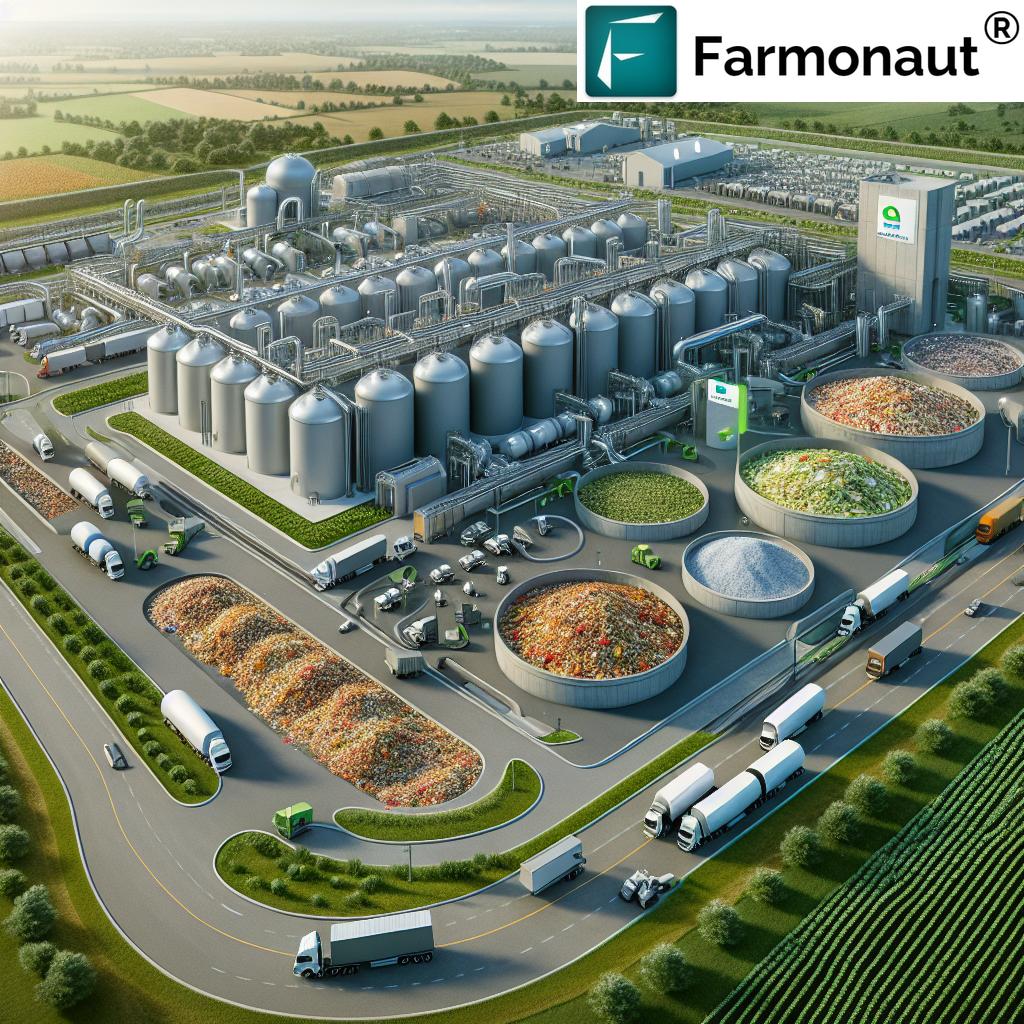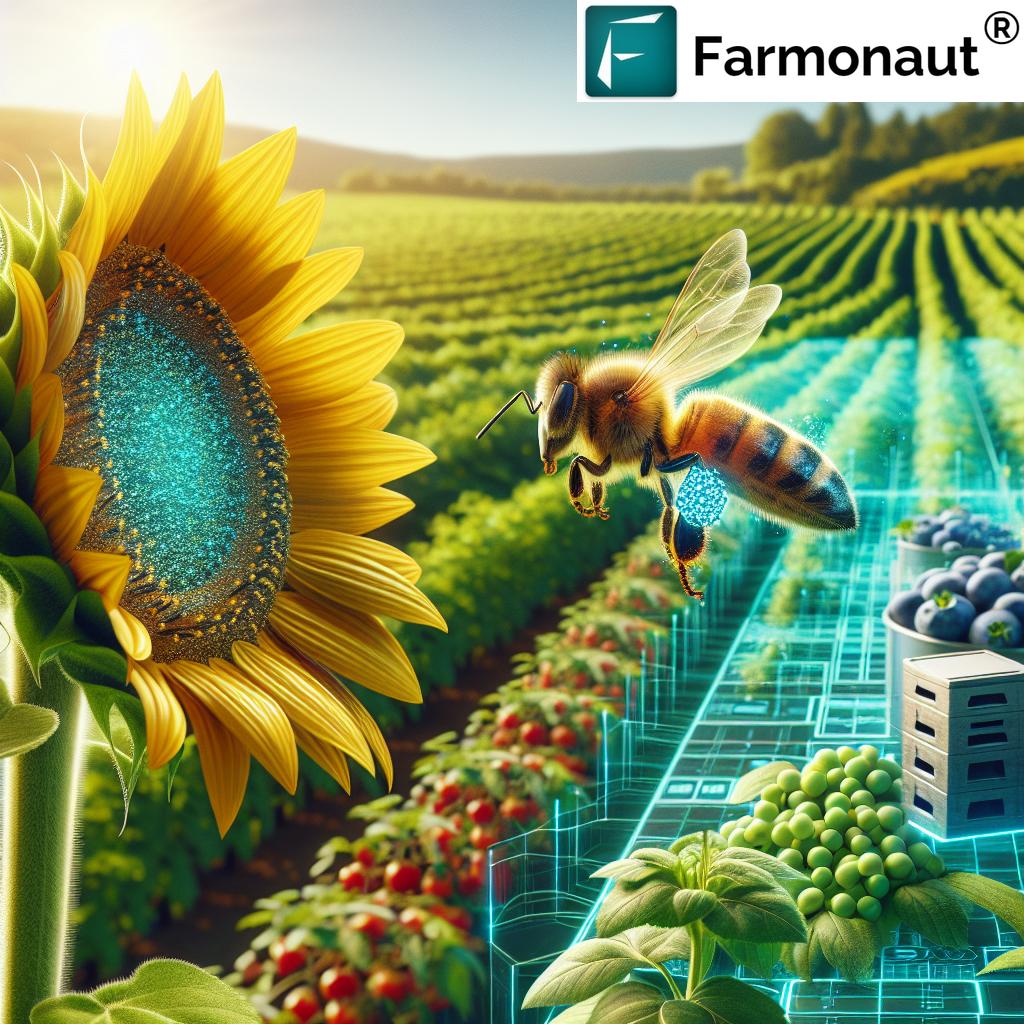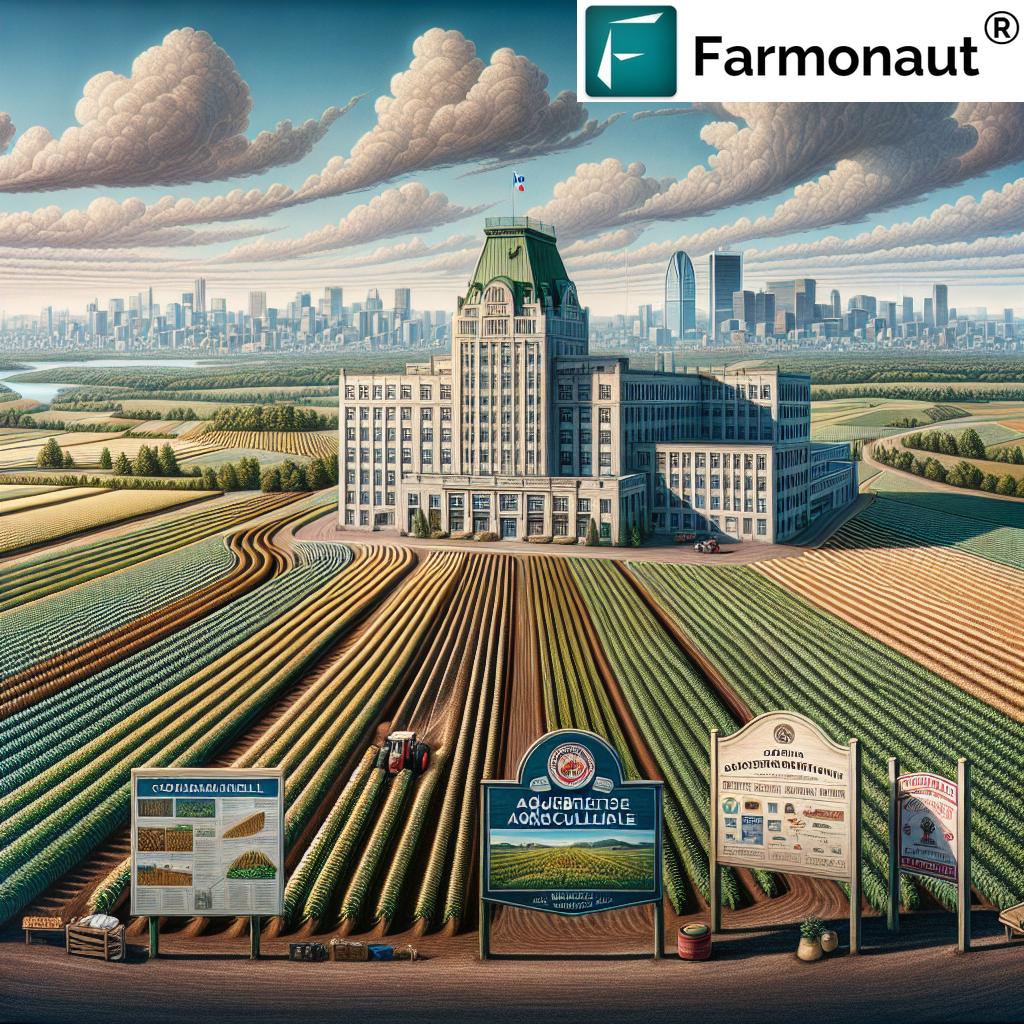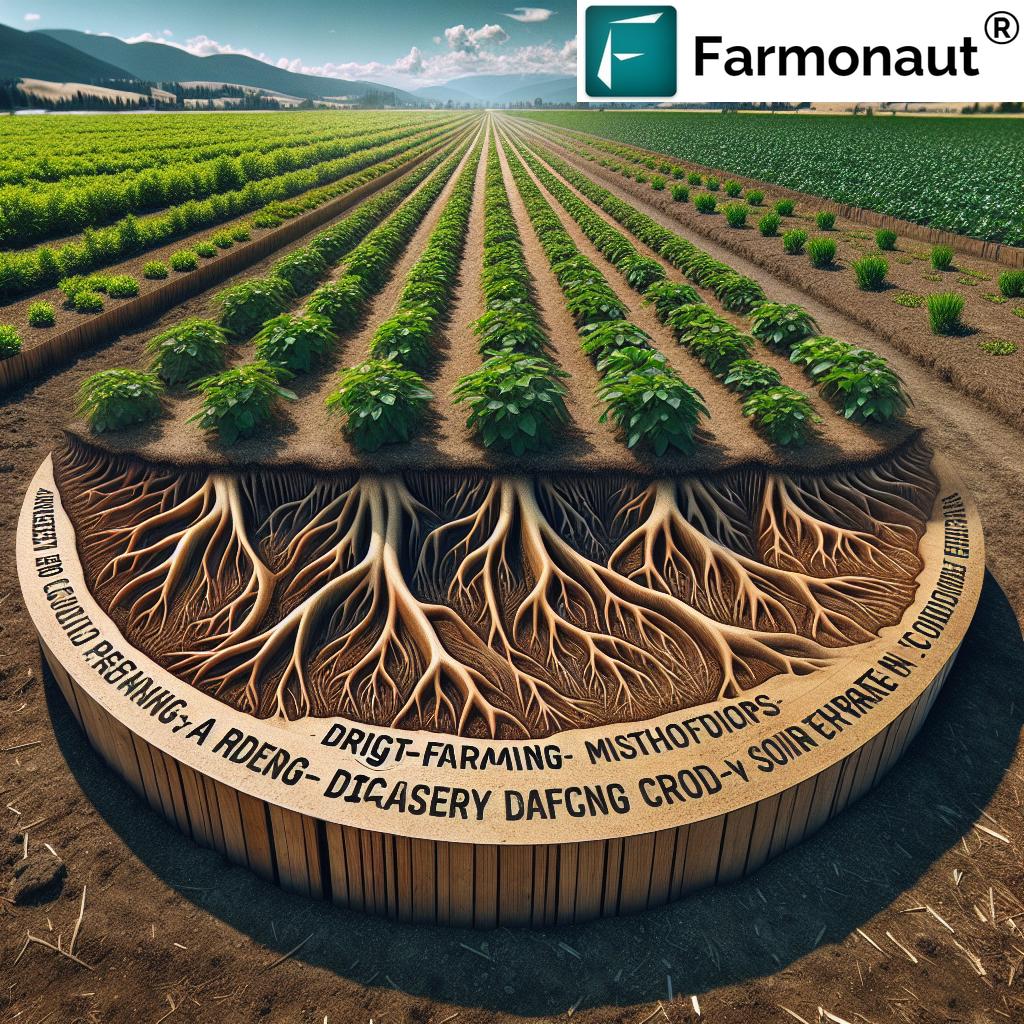From Roots to Riches: How a Canadian Family Farm Blossomed into a Thriving Multi-Generational Greenhouse Empire
“A Canadian family farm expanded from humble beginnings to 10 acres of greenhouses and 300 acres of orchards over three generations.”
Welcome to the inspiring journey of the Meyer family, whose agricultural legacy has flourished across three generations in the heart of Canada. Our story is one of perseverance, innovation, and a deep-rooted passion for farming that has transformed a modest family operation into a thriving greenhouse empire. As we delve into this remarkable tale, we’ll explore how diversifying farm income sources, embracing sustainable agriculture practices, and implementing effective orchard management techniques led to extraordinary growth and success.
From its humble beginnings to its current status as a sprawling enterprise spanning 10 acres of greenhouses and 300 acres of orchards, the Meyer family farm has weathered numerous challenges through innovation, dedication, and a commitment to excellence. Join us as we uncover the key factors behind their success, including greenhouse flower production, horticulture education, and agricultural business succession planning.
Throughout this blog post, we’ll gain valuable insights into creating a positive work environment that fosters employee retention and loyalty – a crucial aspect of any successful multi-generational farming business. Moreover, we’ll explore how modern farming techniques can be seamlessly integrated with time-honored traditions to build a lasting agricultural legacy.

The Seeds of Success: Humble Beginnings
Our story begins in the early 1950s when John Meyer, a young and ambitious farmer, purchased a small plot of land just outside Toronto, Canada. With nothing more than a few acres of fertile soil and a dream, John set out to create a sustainable future for his family through the art of farming.
- Initial focus: Fruit orchards and vegetable crops
- Challenges: Limited resources, unpredictable weather, and fierce market competition
- Early innovations: Implementing basic irrigation systems and crop rotation techniques
Despite the obstacles, John’s unwavering determination and hard work began to pay off. The farm slowly but steadily grew, and soon, the Meyer name became synonymous with quality produce in local markets.
Branching Out: The Second Generation Takes Root
As John’s children grew up on the farm, they developed a deep appreciation for agriculture and a desire to contribute to the family business. In the late 1970s, John’s son, Michael, joined the operation full-time after completing his studies in horticulture.
Michael brought with him fresh ideas and a vision for expansion. He recognized the potential in diversifying their operations and suggested venturing into greenhouse production. This decision would prove to be a turning point for the Meyer family farm.
- Expansion into greenhouse farming: Construction of the first 1-acre greenhouse
- New crops: Introduction of flower production, particularly lilies
- Market expansion: Targeting wholesale buyers in Toronto and surrounding areas
The addition of greenhouse operations allowed the Meyer farm to extend their growing season and protect crops from harsh Canadian winters. This move not only increased their production capacity but also opened up new markets and income streams.
Cultivating Growth: Sustainable Practices and Innovation
As the farm continued to expand under Michael’s leadership, a strong emphasis was placed on adopting sustainable agriculture practices. The Meyer family recognized early on that long-term success in farming was intrinsically linked to environmental stewardship.
- Implementation of integrated pest management (IPM) techniques
- Investment in energy-efficient greenhouse structures and systems
- Water conservation methods, including rainwater harvesting and drip irrigation
- Soil health management through composting and cover cropping
These sustainable practices not only reduced the farm’s environmental impact but also led to significant cost savings and improved crop quality. The Meyer family’s commitment to sustainability became a cornerstone of their brand identity, attracting environmentally conscious buyers and setting them apart from competitors.
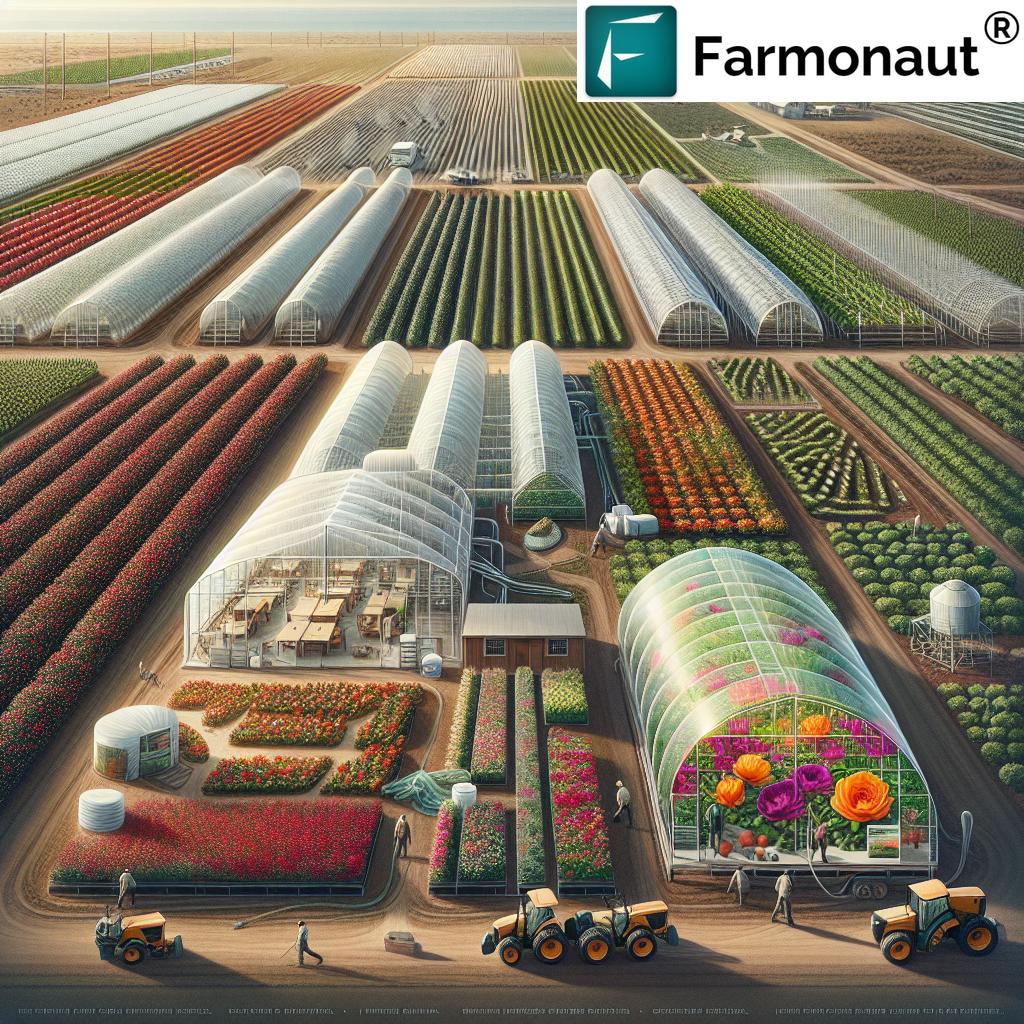
Blossoming Success: Greenhouse Flower Production
One of the most significant contributors to the Meyer farm’s success was their foray into greenhouse flower production. Under Michael’s guidance, the farm specialized in growing high-quality lilies, which quickly became their signature product.
- Expansion of greenhouse facilities to accommodate flower production
- Investment in specialized equipment for flower cultivation and handling
- Development of a robust supply chain for flower distribution
- Establishment of relationships with florists and event planners in major Canadian cities
The Meyer family’s dedication to producing top-tier flowers earned them a reputation for excellence in the floriculture industry. Their lilies became highly sought after for weddings, corporate events, and high-end floral arrangements across Canada.
Nurturing Knowledge: Horticulture Education and Training
Recognizing the importance of continuous learning and skill development in agriculture, the Meyer family placed a strong emphasis on horticulture education and training. This commitment not only benefited their own operations but also positioned them as leaders in the industry.
- Partnerships with local agricultural colleges for internship programs
- Regular attendance at industry conferences and workshops
- Investment in employee training and development
- Hosting educational tours and workshops for aspiring farmers
By fostering a culture of learning and innovation, the Meyer farm ensured that they stayed at the forefront of agricultural advancements. This approach also helped them attract and retain talented employees who were eager to grow their skills in a supportive environment.
Harvesting Success: Diversifying Farm Income Sources
As the farm grew, the Meyer family recognized the importance of diversifying their income sources to ensure long-term stability and growth. They explored various avenues to expand their business beyond traditional crop production.
- Agritourism: Opening the farm for seasonal events and tours
- Value-added products: Creating jams, preserves, and floral arrangements
- Farm-to-table initiatives: Partnerships with local restaurants and chefs
- Consulting services: Offering expertise to other farmers and greenhouse operators
These diversification efforts not only provided additional revenue streams but also helped to strengthen the Meyer farm’s brand and community presence. By offering a range of products and experiences, they were able to appeal to a broader customer base and mitigate risks associated with market fluctuations.
“This multi-generational greenhouse empire spans 310 total acres, combining modern techniques with time-honored farming traditions.”
Rooted in Tradition, Growing with Innovation
As the Meyer farm entered its third generation of family ownership, the challenge was to balance time-honored farming traditions with modern agricultural innovations. Sarah Meyer, Michael’s daughter and a recent graduate in agricultural science, joined the family business in the early 2000s, bringing with her a fresh perspective and technological expertise.
- Implementation of precision agriculture techniques in orchard management
- Adoption of data-driven decision-making for crop planning and resource allocation
- Integration of automated systems for climate control and irrigation in greenhouses
- Exploration of vertical farming techniques to maximize space utilization
Sarah’s influence helped propel the Meyer farm into the digital age of agriculture, while still maintaining the core values and practices that had been the foundation of their success for decades.
Cultivating a Positive Work Environment
One of the key factors in the Meyer farm’s long-term success has been their ability to create a positive work environment that fosters employee retention and loyalty. The family recognized early on that their employees were their most valuable asset and invested heavily in their well-being and professional growth.
- Competitive wages and comprehensive benefits packages
- Opportunities for career advancement and skill development
- Regular team-building activities and employee appreciation events
- Open communication channels between management and staff
- Safe and comfortable working conditions, especially in greenhouse environments
This commitment to their workforce has resulted in low turnover rates and a team of dedicated, skilled employees who contribute significantly to the farm’s ongoing success.
Weathering Challenges: Resilience in the Face of Adversity
The journey to success for the Meyer family farm was not without its challenges. Over the years, they faced numerous obstacles that tested their resilience and adaptability.
- Economic downturns and market volatility
- Severe weather events and climate change impacts
- Regulatory changes and increased competition
- Labor shortages and rising operational costs
However, the Meyer family’s ability to anticipate challenges, adapt their strategies, and maintain a long-term perspective allowed them to navigate these difficulties successfully. Their diverse operations and strong financial management practices provided a buffer against economic uncertainties, while their investments in sustainable practices and technology helped mitigate the impacts of climate change.
Planting Seeds for the Future: Succession Planning
As the Meyer farm grew into a multi-generational enterprise, the importance of effective succession planning became increasingly apparent. The family recognized that a smooth transition between generations was crucial for the continued success and longevity of their business.
- Early involvement of younger family members in farm operations
- Clear communication of roles, responsibilities, and expectations
- Gradual transfer of knowledge and decision-making authority
- Professional development opportunities for next-generation leaders
- Regular family meetings to discuss business strategy and future plans
By prioritizing succession planning, the Meyer family ensured that each generation was well-prepared to take the reins of the business, maintaining continuity while allowing for fresh perspectives and innovation.
Reaping the Rewards: Current Status and Future Outlook
Today, the Meyer family farm stands as a testament to the power of perseverance, innovation, and family unity. With 10 acres of state-of-the-art greenhouses and 300 acres of meticulously managed orchards, the operation has become a leading player in Canada’s agricultural sector.
- Annual production of over 1 million lily stems
- Diverse fruit orchards producing apples, pears, and stone fruits
- Year-round vegetable production in climate-controlled greenhouses
- Thriving agritourism business attracting thousands of visitors annually
- Expanding export market for specialty flowers and premium fruits
Looking to the future, the Meyer family remains committed to sustainable growth, continuous innovation, and maintaining their position as industry leaders. They are exploring opportunities in vertical farming, renewable energy integration, and further expansion of their value-added product lines.
Lessons from the Land: Key Takeaways
The success story of the Meyer family farm offers valuable insights for aspiring and established farmers alike. Here are some key lessons we can draw from their journey:
- Embrace innovation while respecting traditional farming wisdom
- Diversify operations to create multiple income streams and mitigate risks
- Invest in sustainable practices for long-term profitability and environmental stewardship
- Prioritize employee well-being and create a positive work culture
- Plan for succession early and involve younger generations in the business
- Stay adaptable and resilient in the face of changing market conditions and challenges
- Continuously invest in education and skill development for all family members and employees
By following these principles and adapting them to their own unique circumstances, other family farms can chart a path toward long-term success and create their own multi-generational legacies.
Conclusion: A Legacy Rooted in Passion and Innovation
The story of the Meyer family farm is more than just a tale of agricultural success; it’s a testament to the power of family unity, innovation, and unwavering commitment to quality. From its humble beginnings as a small fruit orchard to its current status as a thriving multi-generational greenhouse empire, the Meyer farm exemplifies the potential for growth and success in the agricultural sector.
By embracing sustainable practices, diversifying their operations, and fostering a culture of continuous learning and innovation, the Meyer family has not only built a successful business but also contributed significantly to the advancement of Canadian agriculture. Their journey serves as an inspiration to farmers worldwide, demonstrating that with passion, perseverance, and a willingness to adapt, it’s possible to transform a modest family farm into a thriving enterprise that spans generations.
As we look to the future of agriculture, the Meyer family’s story reminds us of the importance of balancing tradition with innovation, respecting the land while harnessing technology, and above all, nurturing the human relationships that form the heart of any successful farming operation. Their legacy is a beacon of hope for the future of family farming, proving that with the right approach, agricultural businesses can not only survive but thrive in an ever-changing world.
FAQ Section
Q1: What were the key factors in the Meyer family farm’s success?
A1: The key factors included diversification of farm income sources, adoption of sustainable agriculture practices, investment in greenhouse technology, emphasis on quality flower production, commitment to employee well-being, and effective succession planning.
Q2: How did the farm manage to expand from a small operation to 310 acres?
A2: The expansion was gradual and strategic, involving investments in greenhouse construction, acquisition of additional orchard land, and diversification into new markets like floriculture and agritourism.
Q3: What role did innovation play in the farm’s growth?
A3: Innovation was crucial, from the adoption of greenhouse technology to the implementation of precision agriculture techniques. Each generation brought new ideas and technologies to improve efficiency and productivity.
Q4: How did the Meyer family approach succession planning?
A4: They focused on early involvement of younger family members, clear communication of roles and expectations, gradual transfer of knowledge and authority, and providing professional development opportunities for next-generation leaders.
Q5: What sustainable practices did the farm implement?
A5: The farm implemented integrated pest management, energy-efficient greenhouse systems, water conservation methods, and soil health management practices like composting and cover cropping.
| Year | Generation | Milestone | Farm Size |
|---|---|---|---|
| 1950s | 1st – John Meyer | Initial farm establishment | 5 acres |
| 1970s | 2nd – Michael Meyer | Introduction of greenhouse operations | 50 acres |
| 1980s | 2nd – Michael Meyer | Expansion into flower production | 100 acres |
| 1990s | 2nd – Michael Meyer | Implementation of sustainable practices | 150 acres |
| 2000s | 3rd – Sarah Meyer | Integration of precision agriculture | 200 acres |
| 2010s | 3rd – Sarah Meyer | Expansion of agritourism and value-added products | 250 acres |
| Present | 3rd – Sarah Meyer | Thriving multi-generational enterprise | 310 acres (10 acres greenhouse, 300 acres orchards) |
As we conclude this inspiring journey through the Meyer family’s agricultural legacy, it’s clear that their success story offers valuable lessons for farmers and entrepreneurs alike. Their ability to blend traditional farming wisdom with cutting-edge innovations has set a benchmark in the industry.
For those looking to enhance their own agricultural operations with modern technology, we recommend exploring the advanced solutions offered by Farmonaut. Their satellite-based farm management tools can provide valuable insights for precision agriculture, helping farmers make data-driven decisions to optimize crop yields and resource management.
Check out Farmonaut’s offerings:
For developers interested in integrating agricultural data into their own applications, Farmonaut also offers an API service. Learn more about their API and check out the API Developer Docs for detailed information.
By leveraging such advanced agricultural technologies, modern farmers can continue to build on the legacy of success exemplified by families like the Meyers, ensuring a thriving and sustainable future for agriculture.









